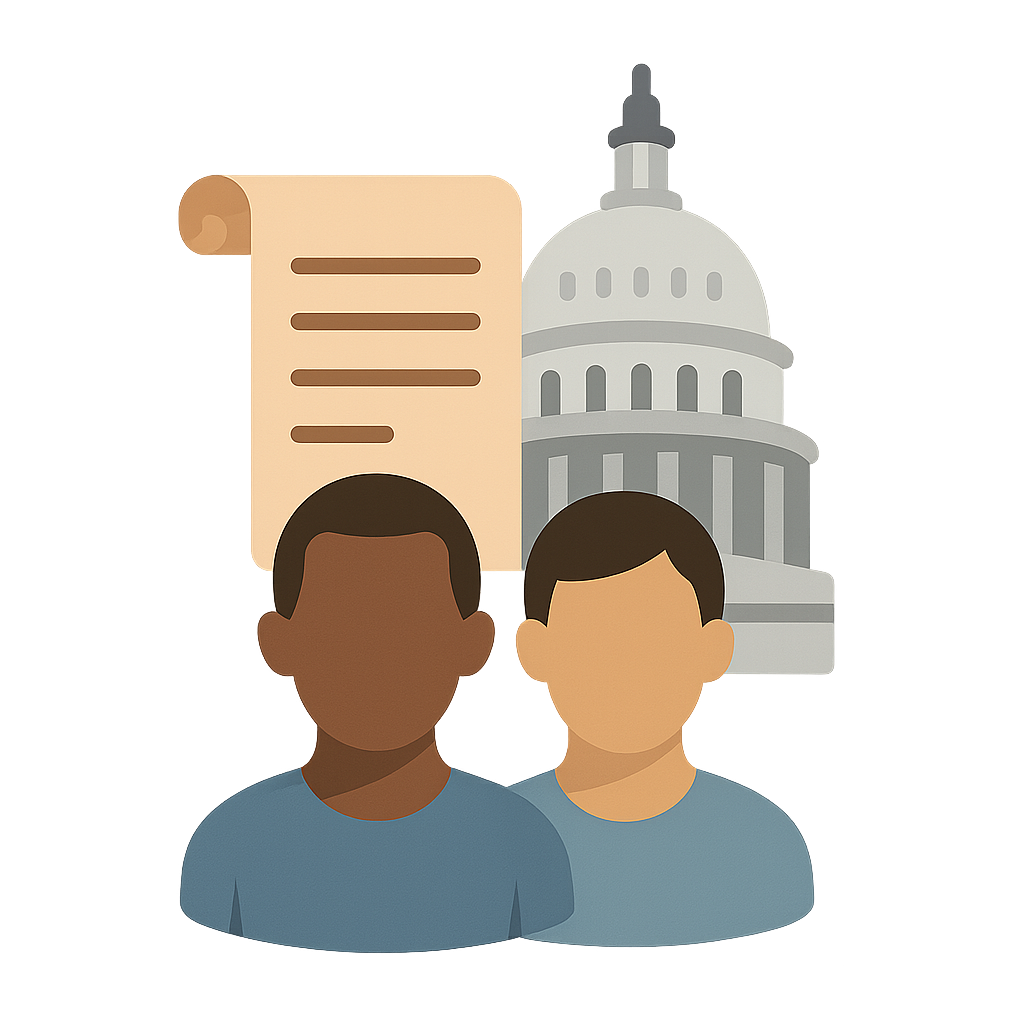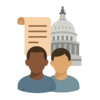My Dream for a Better World
My name is Martin Luther King Jr., and my story begins in Atlanta, Georgia, where I was born on January 15, 1929. I grew up in a house filled with love, with my parents, Reverend Martin Luther King Sr. and Alberta Williams King, my sister Christine, and my brother A.D. My father was a pastor, and from him, I learned about faith and the importance of standing up for what is right. My mother taught me that I was just as good as anyone else, a lesson I would carry with me my entire life. But outside the warmth of my home, the world was very different. I saw signs that read 'Whites Only,' and I couldn't understand why. I remember seeing two water fountains side-by-side, one for white people and one for 'colored' people. The injustice of it felt like a heavy weight on my young shoulders. My parents explained to me the painful reality of segregation—a system of unfair rules designed to keep black and white people separate and unequal. They told me that even though the law was unjust, I should never believe I was inferior. These early experiences, combined with the powerful lessons from my parents and my growing faith, planted a seed in my heart. It was a seed that would grow into a powerful dream: a dream of a world where everyone would be treated with dignity and respect, a world built on justice and love.
That dream began to take shape in a city called Montgomery, Alabama. On a chilly afternoon, December 1, 1955, a quiet but courageous woman named Rosa Parks made a monumental decision. She was tired of the segregation on city buses, where Black passengers were forced to give up their seats to white riders, so she refused to move. Her arrest was the spark that ignited a fire in our community. I had recently become the pastor at Dexter Avenue Baptist Church, and I was chosen by my fellow community leaders to help guide our response. We decided we would not fight with anger or violence, but with peace and unity. We organized the Montgomery Bus Boycott, asking every Black citizen to refuse to ride the city buses until the segregation laws were changed. For 381 long days, our community stood together. People walked miles to work, organized carpools, and supported one another through exhaustion and hardship. My wife, Coretta Scott King, was my rock during this time, offering strength and support as we faced threats and uncertainty. It was incredibly challenging, but the spirit of the people was unbreakable. We were proving that nonviolent protest could be a powerful force for change. Finally, in November 1956, our peaceful determination was rewarded when the U.S. Supreme Court declared that segregation on public buses was unconstitutional. We had not only walked for our right to a seat on the bus; we had walked for our dignity and had shown the entire nation the power of standing together for justice.
Our victory in Montgomery was just the beginning. The desire for freedom and equality was sweeping across the country, and we knew we needed to bring our message to the nation's capital. We organized the March on Washington for Jobs and Freedom. On August 28, 1963, I stood on the steps of the Lincoln Memorial and looked out at a sight that filled my soul with hope. Before me was a sea of over 250,000 hopeful faces—people of all races, religions, and backgrounds who had traveled from all corners of the country to demand change. The air buzzed with a powerful mixture of determination and peaceful energy. As I approached the microphone, I carried the weight and hopes of millions with me. I had a speech prepared, but in that moment, I felt called to speak directly from my heart. I started talking about a dream I held, a dream deeply rooted in the American dream. I spoke of my vision for a future where my four little children would one day live in a nation where they would not be judged by the color of their skin but by the content of their character. I dreamed of a day when freedom would ring from every mountainside, when former slaves and the sons of former slave owners could sit down together at the table of brotherhood. The crowd listened, and it felt as though every heart was beating as one. We were not just asking for new laws; we were calling for a change in the heart of America itself, a change that would allow us to finally live out the true meaning of our nation's creed: that all men are created equal.
That day in Washington was a turning point, and it helped propel our movement forward. The powerful display of unity and the moral force of our cause could no longer be ignored. The year after the march, the Civil Rights Act of 1964 was passed, a landmark law that outlawed segregation in public places and banned employment discrimination on the basis of race, color, religion, sex, or national origin. It was a giant step toward dismantling the unjust system we had fought against for so long. Then, in 1965, the Voting Rights Act was signed into law, protecting the right of all citizens to vote, a fundamental pillar of any democracy. These victories were not mine alone; they belonged to every person who marched, every individual who endured insults and threats with peaceful dignity, and every soul who believed in a more just world. Our work was far from over, and the path ahead was still filled with challenges. But we had shown that change is possible when people unite for a common good. My message to you is to carry that spirit forward. Keep the dream alive in your own heart by treating every person with kindness and respect. Have the courage to stand up for what is right, even when it is difficult. Be a force for peace and justice in your community and in the world. The future is in your hands, and you have the power to build a world where everyone can live in freedom and dignity.
Reading Comprehension Questions
Click to see answer



